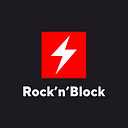Founder’s Guide to Choosing a Blockchain Platform
Understanding Your Use Case
When choosing a blockchain platform, it’s crucial to align it with your specific use case. Different projects have distinct needs — whether it’s scalability for dApps, security for token development, or low transaction fees for NFT marketplaces — choosing the right platform ensures success by addressing key technical and operational requirements from the start.
Types of Blockchain: Public, Private, or Consortium
Blockchain platforms come in different flavors, including public, private, consortium, and permissioned blockchains.
- Public Blockchains: Fully decentralized and open to all, ideal for transparency and security (e.g., Ethereum, Bitcoin).
- Private Blockchains: Restricted to authorized participants, suitable for privacy and control in business operations.
- Consortium Blockchains: Shared by multiple organizations, balancing transparency and control for sectors like healthcare or finance.
- Permissioned Blockchains: Limited to authorized users, offering high security for enterprise applications requiring strict governance.
Custom Blockchain Development vs. Building on an Existing Solution
Deciding between custom blockchain development, building on an existing platform, or forking is key to your project’s success.
- Custom Blockchain Development: Offers full control, scalability, and tailored features but is costly and time-consuming.
- Building on Existing Blockchain: Faster and more cost-effective, with built-in tools, but offers less customization and higher fees.
- Forking: Balances control and development speed, leveraging existing code but still requires ongoing maintenance.
Security and Consensus Mechanisms
Consensus mechanisms ensure blockchain security and transaction validity.
- Proof of Work (PoW): Secure but energy-intensive, used by Bitcoin.
- Proof of Stake (PoS): More energy-efficient, validators stake tokens.
- Delegated Proof of Stake (DPoS): Faster, less decentralized, uses elected validators.
- Proof of Authority (PoA): Trusted validators rotate block creation.
- Proof of History (PoH): Adds historical record to help with transaction ordering.
- Proof of Liquidity (PoL): Recently introduced by Berachain, PoL secures the blockchain by leveraging liquidity provided on-chain.
- Tangle: IOTA’s miner-less system with no fees.
The right consensus mechanism depends on project goals, security, and scalability needs.
Scalability Matters
Scalability is essential for blockchains to handle increasing transactions, ensuring smooth performance and reducing costs. A scalable blockchain supports higher transaction volumes, maintaining speed and responsiveness. It also lowers transaction fees, making it attractive for businesses and developers. Additionally, scalability allows blockchains to support diverse use cases and future growth, improving user experience and helping projects stay competitive in the market.
Smart Contract Support
Smart contracts enable automated, trustless transactions, making them crucial for blockchain projects. They offer versatility across various industries and power decentralized applications (dApps). Smart contracts reduce costs by eliminating middlemen, streamline processes, and provide customization for unique project needs. Choosing a blockchain with strong smart contract support ensures interoperability, ecosystem growth, and developer adoption, essential for scalable solutions.
Cost and Pricing
Cost considerations are vital in choosing a blockchain for project development. Key factors include:
- Transaction Fees: Evaluate fee structures, which vary across public (e.g., Ethereum) and private blockchains.
- Infrastructure Costs: Assess hosting and node maintenance costs, whether self-hosted or third-party.
- Development Costs: Factor in expenses for hiring skilled developers and potential learning curves for the chosen platform.
- Licensing Fees: Be aware of any fees from blockchain-as-a-service (BaaS) providers.
- Smart Contract Costs: Understand costs for deploying and executing smart contracts, including gas or staking fees.
- Upgrades and Maintenance: Budget for ongoing maintenance, security audits, and upgrades.
- Data Storage Costs: Consider costs related to storing data on the blockchain.
- Network Growth: Assess how costs may increase with project scaling and the blockchain’s capacity for growth.
- Economic Model: Understand how the blockchain’s economic model affects costs, such as deflationary or inflationary token supplies.
- Token Considerations: Account for costs related to token development, distribution, and governance.
- Regulatory Costs: Budget for compliance costs, including legal consultations and KYC/AML requirements.
- Cost Reduction Strategies: Explore ways to optimize costs, such as using layer-2 solutions or consortium blockchains.
- Business Model: Evaluate how your project will generate revenue to offset costs, considering monetization strategies.
Other Considerations
Beyond costs, several other factors are crucial in selecting a blockchain:
- Development Ecosystem: Ensure the platform has robust development tools, an active developer community, and accessible resources.
- Interoperability: Assess cross-chain compatibility and adherence to industry standards for easier integration.
- Governance: Understand the governance model and community engagement to gauge ongoing support and innovation.
- Regulatory Compliance: Investigate the legal landscape and the platform’s privacy and security features.
- Proof of Concept: Conduct PoCs to evaluate performance, security, and functionality.
- Vendor Support: Review the experience and support services offered by vendors or partners.
- Future Roadmap: Align the platform’s development plans with your long-term goals and be aware of upcoming changes.
- Risk Assessment: Identify potential security vulnerabilities and assess network stability.
By evaluating these criteria, you can choose a blockchain platform that aligns with your project requirements and enhances the chances of successful development.
Rock’n’Block: Your Trusted Partner in Choosing the Best Blockchain for Your Project
Choosing the right blockchain platform is a critical step in ensuring your project’s success. At Rock’n’Block, our expert team is here to guide you through every aspect of blockchain project development, from understanding your use case to choosing the most suitable consensus mechanism.
Whether you’re launching a DeFi platform, NFT platform, or cryptocurrency, we provide tailored blockchain development services that align with your project goals. Let us help you navigate the complexities and unlock the full potential of blockchain technology for your project. Contact Rock’n’Block today to get started!
🔥 Read more in the full guide on our blog! 🫶
